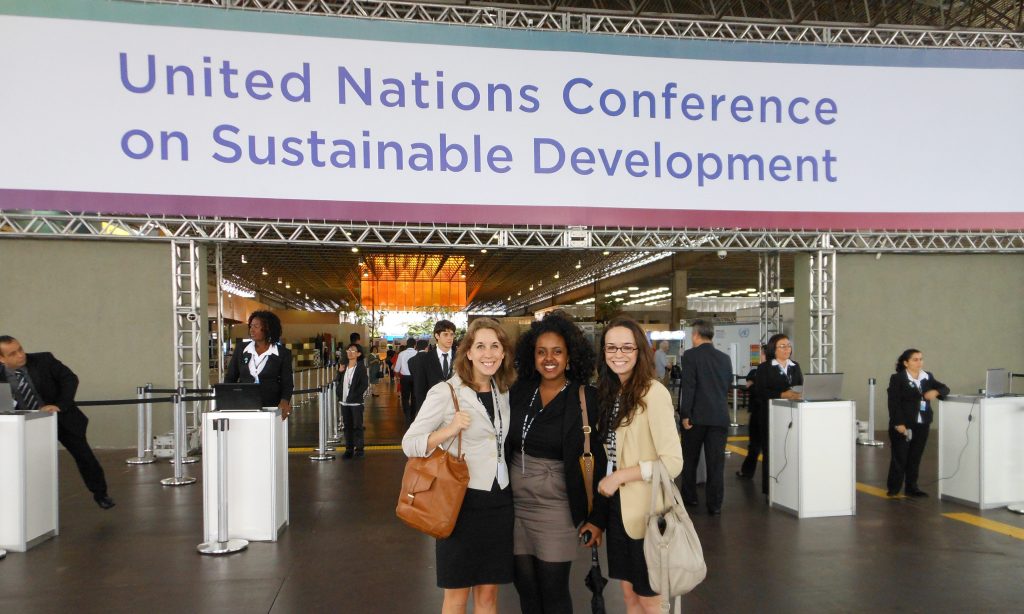ENVST 210: Political Ecology
Students in my Political Ecology class (ENVST 210) use cultural ecology, political economy, discourse analysis and cultural politics lenses to analyze issues ranging from gentrifying Brooklyn neighborhoods to food deserts in Detroit to Singapore water rights. Throughout the course we explore “who gains and who loses”—from framing environmental issues in particular ways, by changing property rights, by commodifying certain resources, or by inviting particular stakeholders into the policy process. The diverse student body and strong international student representation at Mount Holyoke make class discussions tremendously rich as many students draw on their personal experiences growing up, traveling or working in developing countries or with marginalized populations in the United States. Students often report that this course changes the way they think about the world, which is so rewarding.
Seminars
My seminars explore advanced topics in political ecology, global environmental governance and qualitative methods.
ENVST 315: Research, Ethics and Policy
The course begins with a discussion of epistemology and then focuses on the techniques of literature reviews, sampling, survey design, participant observation, interviewing and coding, as well as conducting research in cross-cultural settings and dealing with ethical issues. Students develop research questions and design independent research plans, as well as draft interview questions, participant observation guides, coding frameworks and institutional review board proposals. Each year I invite a number of Mount Holyoke alumnae who have done honors thesis, extensive independent study research or pursued research careers after graduation to speak to the methods class via Skype.
ENVST 341: Science and Power in Environmental Governance
ENVST 341: Science and Power in Environmental Governance reviews the basics of global environmental governance with a focus on four questions: 1) how do different actors gain access to decision-making processes; 2) how is scientific data used; 3) how are policies implemented; and 4) how and why do particular environmental ideas become powerful. Drawing on my previous professional policy experience, I intertwine with this substantive focus an emphasis on the writing and speaking skills needed to engage effectively in public policy. Students refine speaking and writing skills through a series of “real-world” assignments, such as two page policy recommendation memos, press releases, advocacy letters, strategic plans, one minute elevator speeches (for when you get caught in the elevator with the environment minister), State of the Union addresses, issue debates, mock UN negotiations and US Senate negotiations in which students have to write and introduce amendments to an actual Climate Change bill.
ENVST 337: Interdisciplinary Perspectives on Environment and Development
This course engages students in interdisciplinary thinking about environment and development issues. We examine some of the major theories, paradigms, concepts, policies, and programs that analyze, explain, predict or attempt to affect change in the global South. As we discuss the evolution of development theories and practices over time, we reflect on how its theoretical underpinnings help us to understand policy and programmatic “successes” and “failures.”The first third of the course introduces students to philosophical and theoretical debates that have informed paradigm shifts in development studies. We begin by examining the relationship between “international development” and colonialism, and then become familiar with classical political economy and theories of modernization, dependency, post-development and neoliberalism. The second third of the course explores changing approaches to integrate environment and development, and the final third of the course focuses on country-specific case studies in Latin America, sub-Saharan Africa and South-East Asia. We reflect on how our assumptions shape what we “see” in specific sites, how we frame particular problems and what we suggest as solutions.
